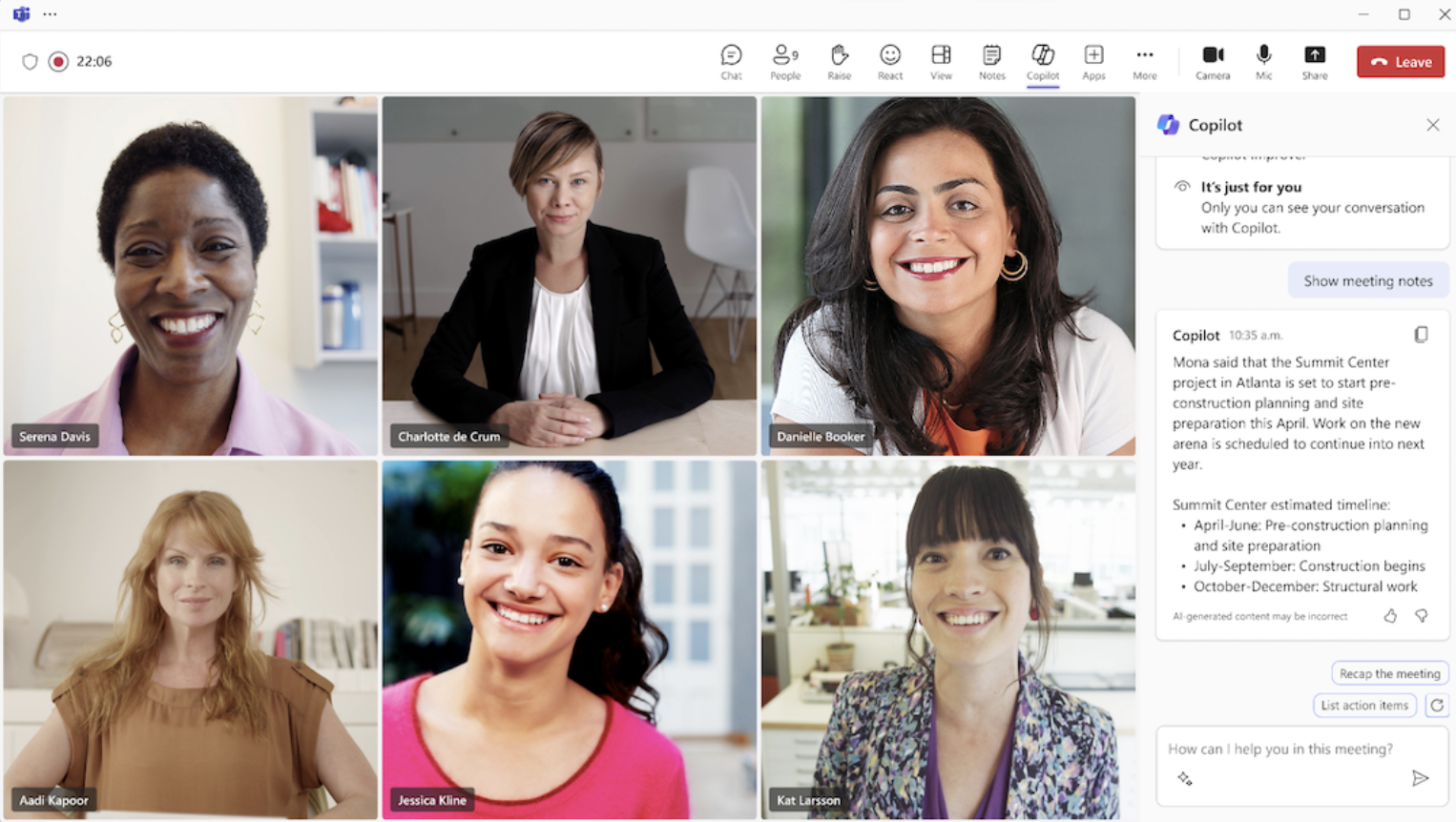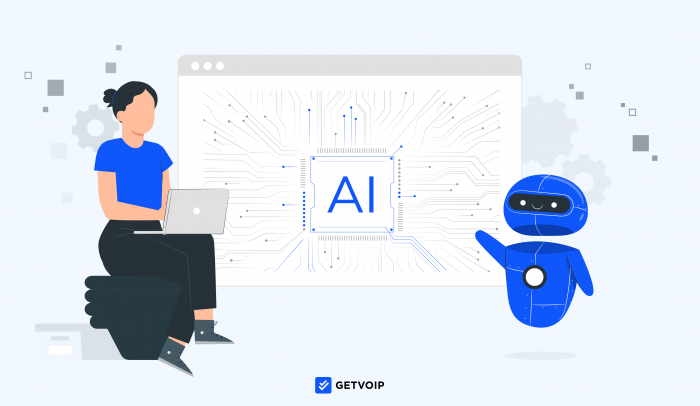AI or artificial intelligence has gone through some major developments in 2023. AI now appears in nearly all aspects of our lives, from the drive-thru taking fast food orders; to contact centers, and assisting agents in taking post-meeting notes.
There is no shortage of what AI technology can do. For a technology built on (the concept of) constant training and learning to improve various experiences, there also seems to be no shortage of what it gets used for today.
That likely means improving customer and end-user experience, as it appears that AI is about enhancing experiences of all kinds.
Generative AI
ChatGPT, which leverages generative AI technology, was introduced in 2022, and was immediately leveraged by enterprises across industries to enhance various business flows, including those performed by collaboration and CCaaS tools.
The growth and adoption rate of generative AI has been explosive. According to a 2023 global study conducted by McKinsey, seventy-nine percent of respondents reported some exposure to generative AI, either for work or outside of work, and 22 percent stated that they regularly use gen AI in their own work.
In March 2023, Google Cloud added a new generative AI app builder to its Contact Center AI platform (CCAI) which allows users to create multimodal chatbots and personalized self-serve customer experiences.
Also in March 2023, ChatGPT 4-Turbo was released, an updated version of ChatGPT that was said to be more reliable, creative, and able to handle much more nuanced instructions than previous versions. The latest ChatGPT model contains knowledge up through April 2023, and is able to browse the internet for current information. ChatGPT 4 can also understand longer and more detailed prompts and includes a dropdown menu with other tools including an AI image generator.

In November 2023, Microsoft released its own generative AI chatbot, Copilot. Built upon OpenAI's GPT-4 large language model, Copilot can respond to creative prompts, write code, create spreadsheets and much more. Copilot was also integrated into Microsoft Teams to automatically track key points, action items, and outcomes of video meetings in real time.
Contact center software and UCC vendors like Dialpad, Zoom, Five9, and countless others have likewise added AI technology to their fleet of tools designed to enhance various experiences.
Business AI: A Growing Trend
Business AI is everything from chatbots used for self-service to IVR - interactive voice response also used for self-service. But business AI goes much deeper than that - as AI can also do things like gather insights from meetings to paint a wholistic photo of a business landscape.
Today, AI can schedule meetings by scanning a group of workers' calendars so they don't have to send near-endless emails back and forth, attempting to find the most optimal time to meet. Beyond that, AI can summarize meetings and even take notes.
It can frame the perfect shot in a virtual business meeting and even ensure quality assurance. That means: training and more occur because AI gets inserted into various business workflows.
For instance, using AI, more specifically, because of a tool called sentiment analysis: a contact center manager can be alerted to a bitter customer and step in to assist the agent in need, advising on the next steps or (to extend) a discount/coupon to rectify the situation.
Automation, Automation, Automation
One of the most prolific ways that AI is helping to improve various business experiences is via process automation.
Essentially: automating (formerly) fully manual processes can save workers time if we consider a business application of process automation. This includes but is not limited to sales orders, accounting reconciliation, data entry, system queries, payroll, employee/vendor onboarding, invoicing; IT support tickets and customer support.
And all this automation, according to a 2023 Kissflow survey, is working to enhance and make working a better experience. It found that 94 percent of SMBs perform repetitive tasks. And automating those tasks, (on the other hand) cultivated a more suitable work environment for 90 percent of knowledge workers.
Productivity increased for 66 percent of workers surveyed - according to that same Kissflow survey.
The Future of AI
The future of AI seems to be a bit fast and furious. What I mean by this is that there will be a lot of advancements made by way of the technology. And that will not always translate into something that makes humans comfortable. As the very nature of technology is that it constantly evolves - that is one of the realities we should prepare to cope with.
Human enhancement - something that sounds quite futuristic, is already here - at least via AI tools, and that is what AI is mostly doing now and making our jobs simpler to do. That is apparent in any (number of) fields, from manufacturing to the contact center sphere.
And for companies like OpenAI and DeepMind: which is owned by Google's parent company: hope to push the technology beyond what anyone previously thought was possible - eventually making AI do anything a human brain could pull off.
That means processing complex thoughts, and dare I say it? Even emote? While I don't think it will be possible for AI to emote - that does not mean that computer geeks won't try.
Contrary to popular belief, AI is not the end-all-be-all; it is not the solution to humanity's most pressing problems. It does, however, present a compelling case in many instances. It is more about choosing to implement it where (it is) best; and ethical.
Not just to be able to make the claim "we have AI."
We must be careful not to straddle (the potentially) slippery slope of AI and to be hyper-aware of the possible hazards it presents when not implemented with care and a sense of ethics.
For now, the technology shows no signs of slowing down. And that means big money for those with a say in the future of said technology. The AI market is expected to be worth over 300 billion U.S. dollars in 2024 according to Statista. And that number is anticipated to reach a staggering two trillion dollars by 2030.



